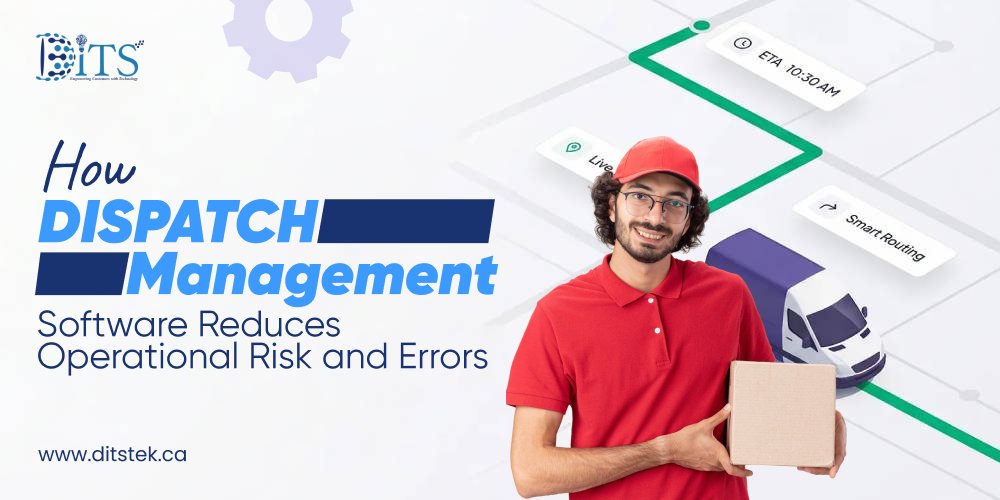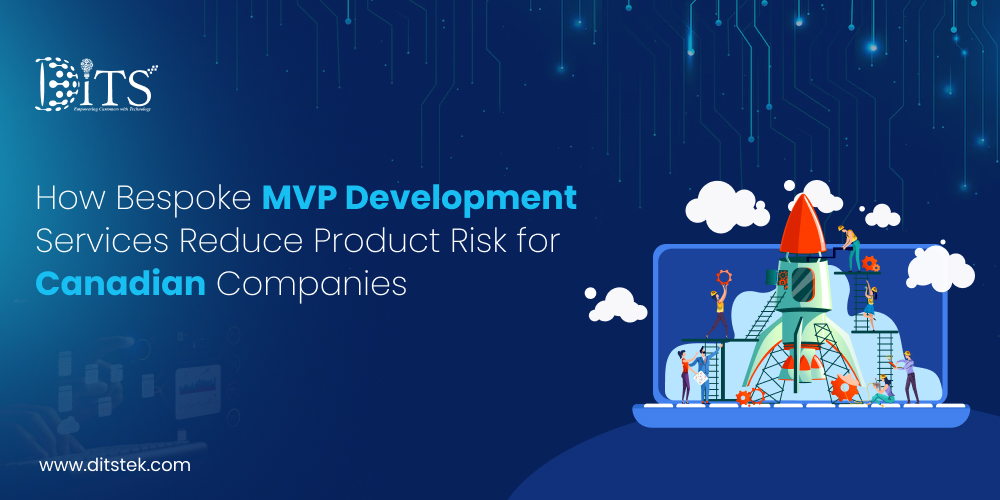Generative AI for Software Development: Applications, Challenges, and Future
Table Of Content
Published Date :
20 Jun 2025
Generative AI is changing many industries globally. However, the industry where things will likely get the most exciting is software development. This is because generative AI is seen for content generation, leverages its AI models to give the appropriate solutions, and develops new processes traditionally underpinned by pure humanity into good processes.
Believe it or not, AI influences how we work and cook, and AI in software development will be trending through 2025 and beyond. Tech leaders, software developers, and enthusiasts are getting comfortable with this latter line of becoming a new normal for many reasons, as it is a somewhat cost-effective new normal.
This blog shares how companies are using generative AI for software development, applications, challenges, and the future of AI in software development. Let’s look at some of the possibilities and shape our AI strategies for software development.
What is Generative AI?
Generative AI is a branch of artificial intelligence that can create new content such as text, code, images, or even designs by learning patterns from existing data. Unlike traditional AI systems that focus on classification or prediction, GenAI models generate original outputs in response to natural language prompts. Powered by technologies like large language models (LLMs), these systems are trained on massive datasets, enabling them to understand context, mimic human communication, and solve problems across various domains. In the context of software development, GenAI can write code, generate documentation, suggest fixes, and even build UI components all from simple instructions. Its ability to automate repetitive tasks, accelerate development cycles, and enhance creativity makes it a game-changer for tech teams. As businesses seek faster, smarter ways to innovate, GenAI is emerging as a powerful ally that boosts productivity, reduces time-to-market, and reshapes how software is imagined and delivered.
What is Generative AI in Software Development?
Generative AI in software development refers to the use of advanced AI models that can autonomously generate, debug, and optimize code. What began as basic code auto-completion has evolved into intelligent systems capable of writing entire functions, suggesting architecture, fixing bugs, and even optimizing performance. This shift marks a major leap from early rule-based AI, which followed predefined instructions, to machine learning systems trained on vast datasets. With access to millions of code samples and real-world software patterns, these models can now understand context, adapt to different programming languages, and assist developers at every stage of the software lifecycle. The result is not just faster coding, but smarter development where AI acts as a collaborative partner. Generative AI tools are transforming how teams build software, making the process more efficient, scalable, and less prone to human error.
Human Intelligence Meets AI Precision at DITS!
We blend developer expertise with AI tools to accelerate development cycles and deliver reliable, innovative solutions.
How Generative AI Helps in Software Development?

There’s no doubt that generative AI (GenAI) is quickly becoming a trusted partner for software developers. In some cases, AI is also used as a full-fledged team member. Whether it's about building software from scratch or modernizing a legacy system, GenAI tools can help at every stage of the development process. Here's a look at where they’re making a difference right now:
1. Bug Detection and Debugging
Bugs are part of software development. Simply fixing bugs is not enough; development teams need to find them, especially the ones that only show up under load, in complex multi-threaded environments, or due to memory leaks.
Generative AI can help software developers in a few smart ways. It can analyze code to spot logical errors that are hard to find using conventional tools. These are the errors where the code works technically but doesn’t quite do what it’s supposed to.
It can also help break down and summarize bug reports, making it easier for teams to pinpoint root causes, recognize recurring patterns, and identify the most likely fixes. This kind of support doesn’t replace existing tools, but it makes them more useful.
2. Code Generation
While generative AI will not write an entire application, it can absolutely help with the repetitive or intricate bits, think boilerplate code, tricky algorithms, or integration snippets that connect external APIs or services.
For example, in SQL development, most developers know the basics, but writing complex, optimized stored procedures is a different story. GenAI can turn a simple prompt into a solid draft of a query or stored procedure, saving time and helping ensure you're following best practices from the start.
3. Code Reviews
Code reviews can be stressful, especially for junior developers facing a room full of seasoned engineers. They're also time-consuming and require developers to spend a lot of time.
Generative AI can prep your code before the official review, pointing out obvious errors, style issues, or potential bugs. It's also a great learning tool, junior team members can explore GenAI's feedback to understand not just what to fix, but why. During group reviews, it can even offer real-time suggestions, like an actual reviewer.
4. Documentation
Every developer has revisited their code after a few months and thought, “What was I doing here?” That’s why good documentation is required in software development.
GenAI can help generate useful, clear documentation right when it’s needed most while the code is fresh in the developer’s mind. It can prompt reasoning behind certain decisions. Why this algorithm? Why that API? Expand those answers into helpful comments and docs. If AI can help write the code, it can document it, too, from top-level summaries to function-level details.
5. Learning and Training
Technology and software development is evolving quickly. Even the most experienced developers are constantly picking up new tools, languages, frameworks, and compliance rules. Generative AI can provide instant support in cases like explanation of a newer library, help with a deprecated API, or examples of how to use a certain design pattern. For teams without time for formal training, this kind of just-in-time learning can offer instant support.
6. Refactoring
Improving code without changing is known as refactoring in software development. You’re often trying to boost performance, reduce memory usage, or just clean up something that’s become messy over time.
GenAI can step in here, too. Give it a function that’s slowing things down, and it can suggest a faster, cleaner alternative. Since developers can compare the before-and-after side by side (including performance metrics), it’s easy to validate the changes. And because GenAI’s suggestions are based on patterns it’s seen across vast amounts of code, it often recommends techniques that are both modern and efficient.
7. Testing
Testing isn’t just about catching bugs, but having confidence in the code. Whether a developer is using test-driven development, doing QA at the end of a sprint, or somewhere in between, Generative AI can help at every stage.
It can draft test cases based on a code, generate automation scripts, and even suggest tests for rare edge cases that developers often miss. And if you already have test cases, GenAI can review them for coverage and effectiveness, pointing out holes or edge conditions developers might have overlooked.
Benefits of Generative AI in Software Development

Generative AI is reshaping how software is built, tested, and maintained. From accelerating development cycles to improving code quality, GenAI is becoming a powerful co-pilot for developers.
Here’s how it’s making a real impact:
Faster Prototyping: AI can quickly generate UI mockups, wireframes, or code snippets from simple prompts thus helping reduce time from idea to MVP.
Code Generation & Autocompletion: Tools like GitHub Copilot help developers write boilerplate code, suggest functions, and auto-complete logic, freeing up time for higher-level problem solving.
Automated Testing: GenAI can generate test cases, detect edge cases, and even simulate user behavior to strengthen quality assurance.
Bug Detection & Resolution: By analyzing large volumes of code and historical bug data, AI models can predict where bugs may arise and suggest fixes before they impact production.
Documentation Made Easy: Writing technical documentation often gets sidelined. AI can auto-generate clear, structured docs from code, improving handoffs and onboarding.
Beyond productivity, it also enhances decision-making. Teams can use GenAI to evaluate architectural decisions, summarize product requirements, or analyze code for security risks.
Smarter Code, Faster Launches – Powered by DITS AI Brains!
Experience software development driven by AI that cuts time, boosts accuracy, and simplifies complexity from day one.
Challenges of Generative AI in Software Development

Generative AI has many benefits, but also has certain problems inherent to the technology that must be assessed:
Code Quality and Reliability
A major issue with using Generative AI for software development is the quality and reliability of generated code. Large Language Models (LLMs) can generate code that is syntactically correct, but it might not be functionally correct or optimized. If left unchecked, it could lead to security loopholes, bugs, and poor performance.
Bias and Fairness
Generative AI models, including LLMs, inherit bias and discriminatory patterns in their training datasets. The potential for biased or discriminatory code generation arises from the opacity of AI models and the unknown nature of their training datasets.
Intellectual Property and Attribution
Generative AI creates further complicated questions about property rights and ownership in software development. Because LLMs learn to generate code from coding patterns in existing codebases, there can be uncertainty regarding ownership and licensing of the generated code.
Skill Development and Workforce Transition
The emergence of generative AI in software development will require developers to develop new skill sets and modify processes to accommodate the changes. Some developers may view AI's automation abilities as a threat to their profession and be concerned about the future of their employment.
The Future of Generative AI in Software Development

AI has already infiltrated development workflows to create more efficient and innovative ways for developers to build next-generation software solutions.
AI Trends
Emerging AI-centric trends are going to impact the ways developers perform their jobs. Some major advancements in predictive coding and intelligent automation will continue to shorten development cycles. These technologies also minimize errors, increase accuracy, and scale accordingly so teams can create software solutions even faster.
AI-Enhanced Development Tools
Intelligent development platforms today offer real-time code recommendations and suggestions at various stages of software development. They also streamline the project management capabilities that will automate debugging and reduce the chances of human error. They have been able to take on manual and repetitive tasks that anyone could do and have been provided toolsets that will make them smarter and more collaborative.
The Evolving Role of Developers
With the move toward artificial intelligence, the developer role is changing beyond honed coding skills to include not only code-based solutions but also acting as a strategic advisor to companies solving problems and identifying the best collaborative path that will combine intelligent technologies to enhance the natural human behaviors of creativity, productivity and the ability to effectively deal with complex or ill-defined problems and solutions
Broader Implications for the Technology Industry
For organizations working in the software development field, leveraging artificial intelligence means more competitive solutions are being developed faster, and more competitive solutions are being created efficiently. These changes are effectively creating new career opportunities, information workers working together, and new business models for organizations within the technology ecosystem. The impact of AI will be huge on the way technology organizations innovate and work.
From Code to Perfection – Built with AI, Reviewed by Experts!
We combine AI’s speed with human expertise to deliver error-free, high-performance software solutions tailored to your needs.
How DITS can help you leverage the power of Generative AI
At DITS, we have been using generative AI to develop software solutions for a decade. We have a dedicated development team that uses AI tools to develop software solutions for our clients worldwide.
From code generation to bug detection and testing, we use generative AI at various stages of software development. However, our developers have a keen eye on the accuracy of code to ensure there are no errors or bugs in the final code. We guarantee that our solutions work as intended and continue to serve the purpose for which they are developed.
Our expertise and experience in software development make us one of the most reliable software development companies in Canada. If you are looking to build any type of software for your business, feel free to contact us or visit our website, ditstek.ca, for more information on our custom software development services.
FAQ’s
Q1: What is generative AI in software development?
Generative AI in software development refers to AI models capable of producing code, automating testing, aiding in debugging, and even recommending design architectures, which will help developers more quickly and effectively build applications.
Q2. How is generative AI useful for developers?
Generative AI makes the development process faster and less prone to human error by doing things developers would otherwise have to do manually, such as automating repetitive coding tasks through generative code, boilerplate code generation, and generating better tests. Also, by providing real-time suggestions, developers' human errors will be minimized and mitigated.
Q3: Do you use Generative AI for software development?
Yes, at DITS we use generative AI for software development for code generation, bug detection, and improving efficiency of our projects. The use of generative AI helps us ensure accuracy, security, and that the code meets the needs of the project.
Q4: Do you use GenAI for software testing?
Yes, we use generative AI to generate test cases, automate unit testing with those test cases, and statistically create simulations outlining expected behavior based on real users' behavior. In this way, GenAI helps us speed-up software testing, ensure thorough testing, and minimize any manual errors.
Q5. Do you offer software maintenance and support services?
Yes, at Ditstek Innovations, we offer ongoing maintenance and support after deployment of our software solutions. Our support services ensure that the software continues to serve your business and users without any issues.
Q6. Will generative AI replace software developers?
No, Generative AI will assist developers in being more productive by replacing the rote stuff. Coding is merely a rote task; the human is still necessary in generating some creativity, logic, and making some decisions for more complex issues and designing software's architecture.
Q7. What programming languages does generative AI support?
Most generative AI will support the more common programming languages such as Python, JavaScript, Java, C#, etc. Each generative AI tool has many models that support programming languages, and each developer will be improving the coverage of languages they support and the tools available in search of making improvements.
Q8. Do you have a dedicated AI software development team?
Yes at DITS, we have a dedicated software development team which works on building AI solutions for clients. Our AI developers also collaborate with development teams working on other projects to help with code generation, testing and debugging for speeding up the development process.
Q9. Can generative AI assist with bugs in code?
Yes! There are many AI tools that will look for bugs, and in some cases it will even provide a suggestion for a fix if it finds a bug by applying similar code patterns to code they know that contain bugs. As a result, debugging will become a much quicker and accurate process.

Dinesh Thakur
21+ years of IT software development experience in different domains like Business Automation, Healthcare, Retail, Workflow automation, Transportation and logistics, Compliance, Risk Mitigation, POS, etc. Hands-on experience in dealing with overseas clients and providing them with an apt solution to their business needs.
Recent Posts

Digital transformation in healthcare streamlines operations, reduces administrative waste, strengthens revenue cycles, and enables data-driven decisions that support sustainable cost control and improved care delivery.

Reduce operational risks and errors by replacing manual, spreadsheet-based processes with dispatch management software.

Discover how bespoke MVP development services help Canadian companies reduce product risk, validate ideas faster, and build scalable products with confidence.